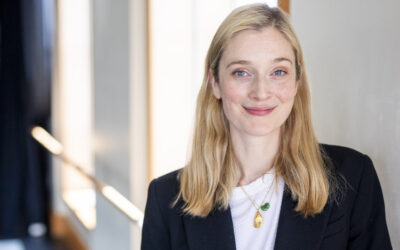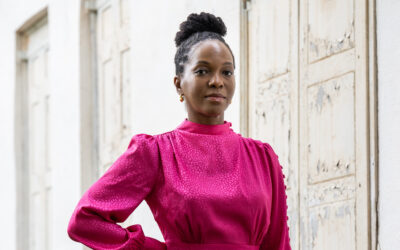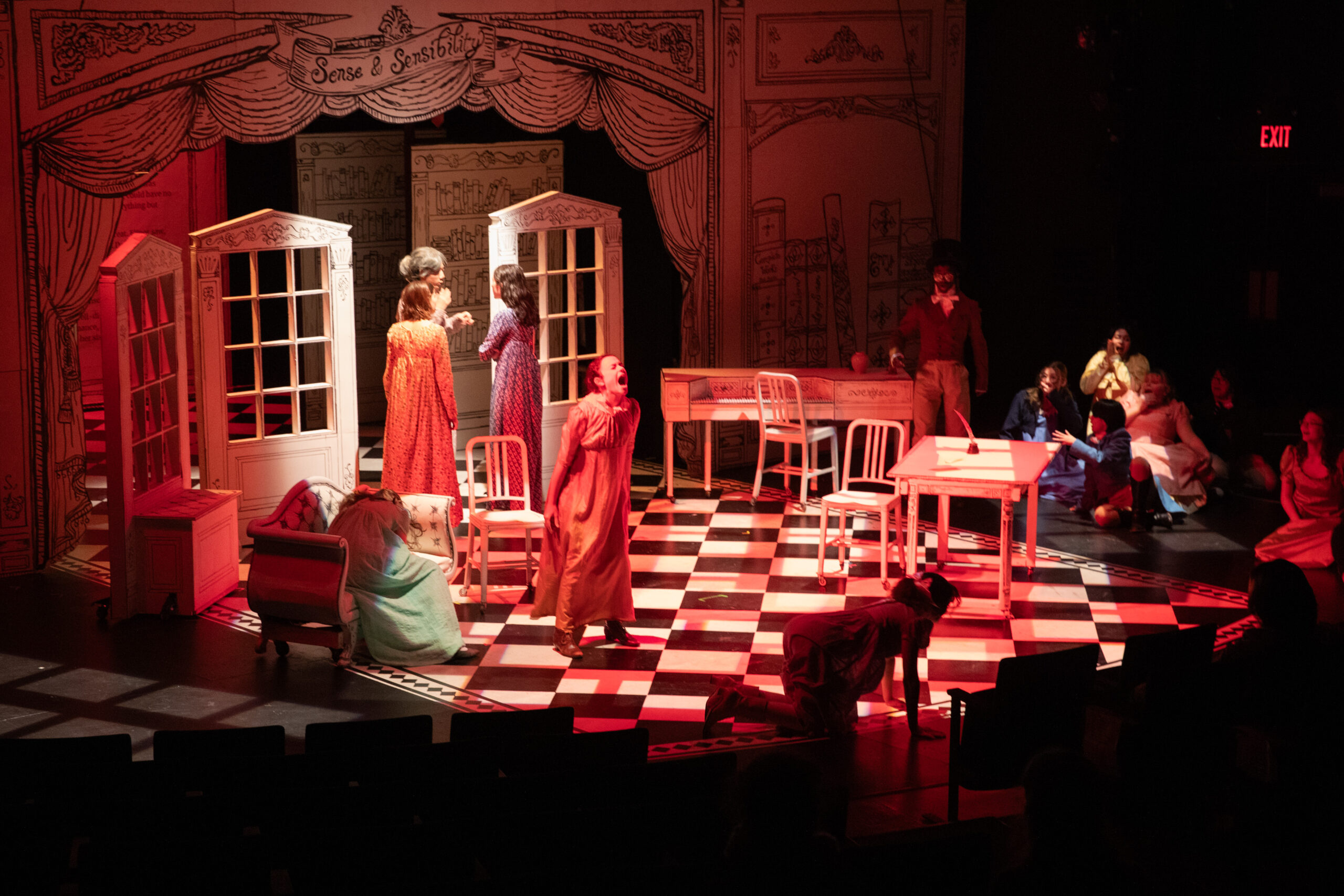
A pivotal scene from CA’s November 2023 production of Sense and Sensibility.
DRAMA
BY
DESIGN
CA theater offers more than a typical high school experience
From the winter 2024 issue of Concord Academy Magazine
February 14, 2024
Story by Heidi Koelz
Photos by Nicholas Pfosi
For the 2023–24 theater season, CA’s Performing Arts Department is presenting fresh takes on British literary classics. In November, the fall mainstage production was a 2014 adaptation of Sense and Sensibility by Kate Hamill; faithful to Jane Austen’s first novel, it plays up the comedy. Next up in February is a musical adaptation of Shakespeare’s Twelfth Night. Both productions take lighthearted approaches to serious topics and celebrate the rich language of the originals. Developed within an ecosystem of integrated academic and extracurricular learning, they continue a long CA tradition of taking theater seriously.
“Art is meant to engage with what is going on in the world,” says Michael Bennett, head of the Performing Arts Department. “What I love about musical theater, in particular, is that it can offer fun and different ways into some heavy topics.” Bennett’s course Gender and Sexuality in the Broadway Musical takes a long view of how this distinctly American art form reflects changing cultural values and ideals. His students learn about staging, costuming, set design, dramaturgy, and historical research. This fall, they began with Rodgers and Hammerstein’s 1943 musical Oklahoma!, examining the historical context of an influx of women into the workforce during World War II. Then they compared the original with director Daniel Fish’s 2019 revival, which Bennett says offered a “new lens of commentary on toxic masculinity, gun violence, and incel culture.”
They also looked at shifting notions of marriage and relationships in Stephen Sondheim’s Company, first produced in 1970, and director Marianne Elliott’s 2018 revival, which changed the gender identity of several characters. “It’s fascinating to see because it doesn’t read as weird at all today,” Bennett says. That’s notable, he adds, because gender- and color-conscious casting is increasingly a challenge of nuance: “Amplifying certain dynamics can be really interesting, but so often there can be unintended consequences if it’s not fully thought through.”
Bennett says, “The beauty of theater is that every time you remount something, you take this frozen text and make new artistic choices.”
The approach theater teacher Shelley Bolman P’27 takes to programming a season has shifted year by year. “Since I’ve been at CA, we’ve centered stories from people of color and women playwrights, and we’ve actually been moving away from the classics a bit more, because they can be rife with prejudices that make them unproduceable,” he says. At the same time, he selects plays that offer as many students as possible opportunities to participate.
There’s tension in that dual goal, Bolman says: “The classics have tons of roles and big casts, and contemporary theater, being less well-funded, tends to involve smaller plays.” Even so, he adds, “We’re looking for things that feel contemporary, or that address contemporary issues so that they’re resonant. We want to find as many parallels as possible between the experiences we’re seeing on stage and real life.”
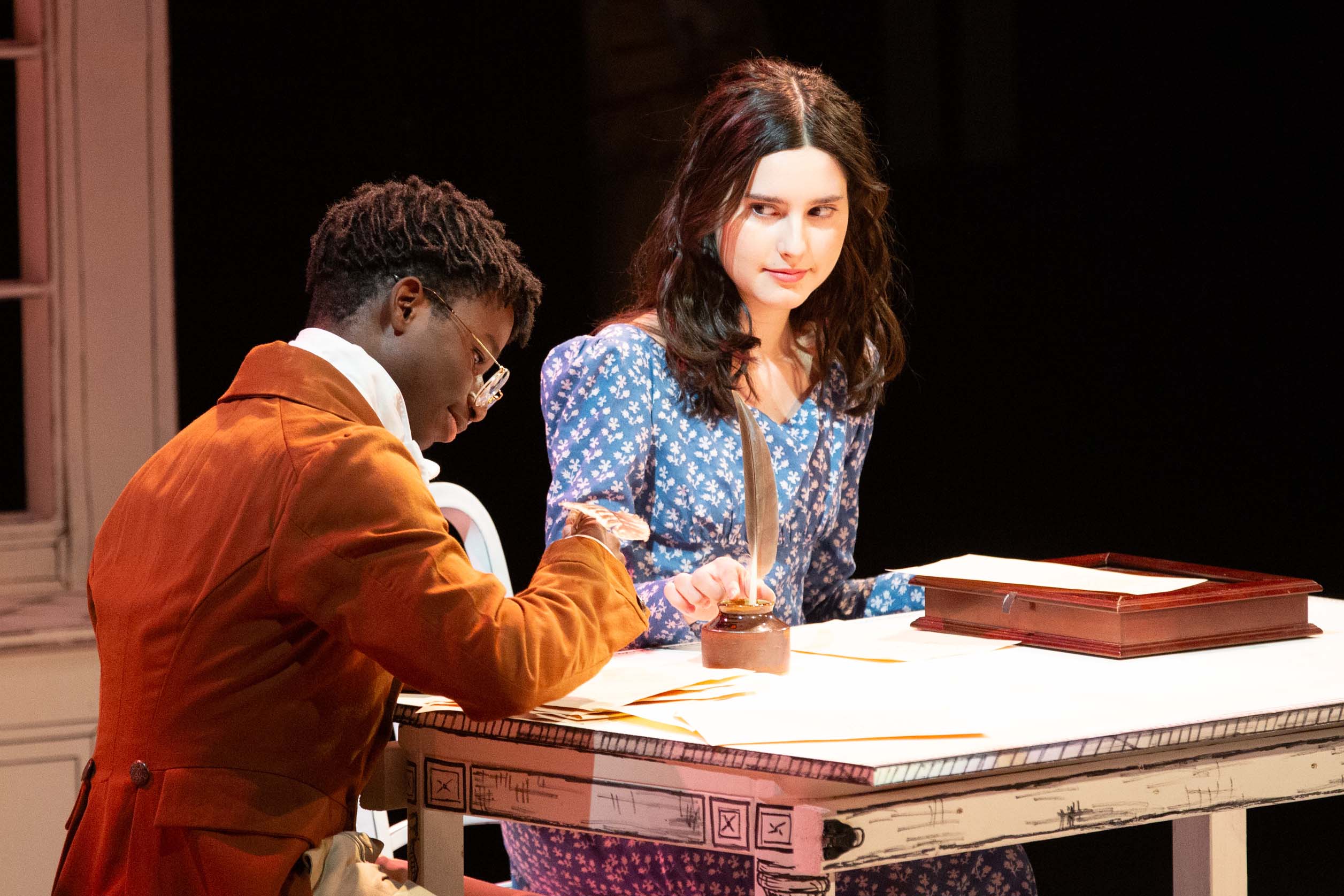
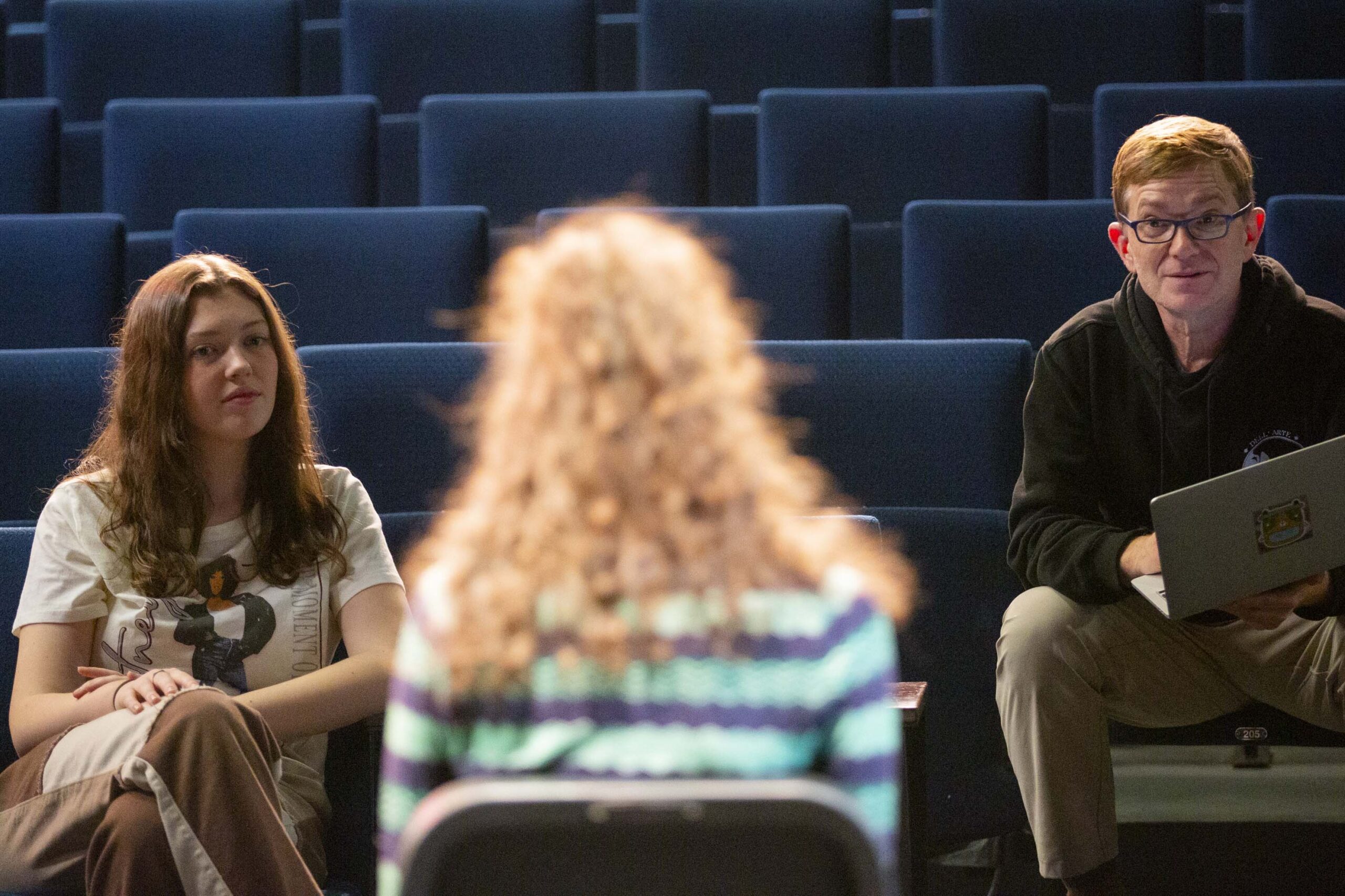
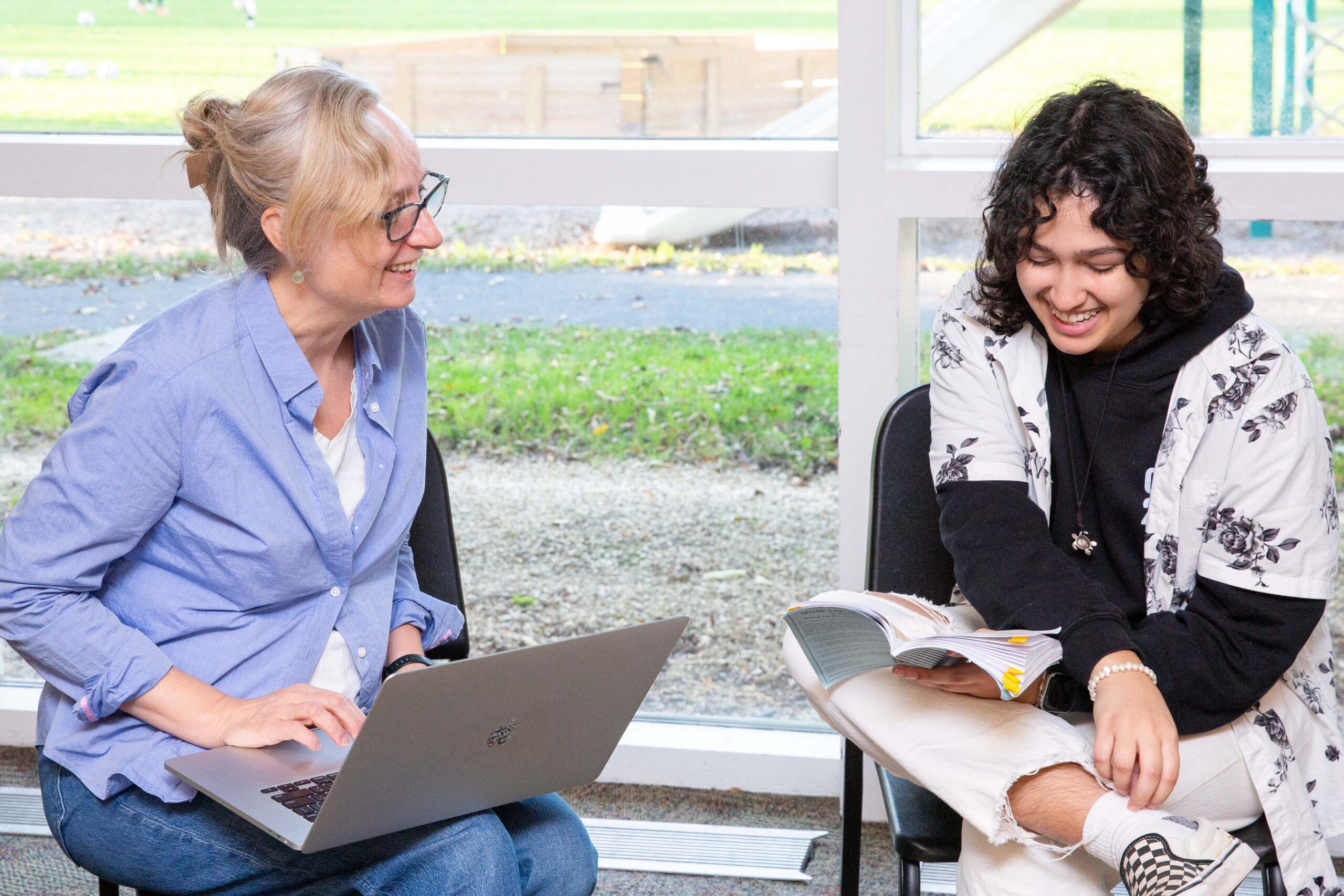
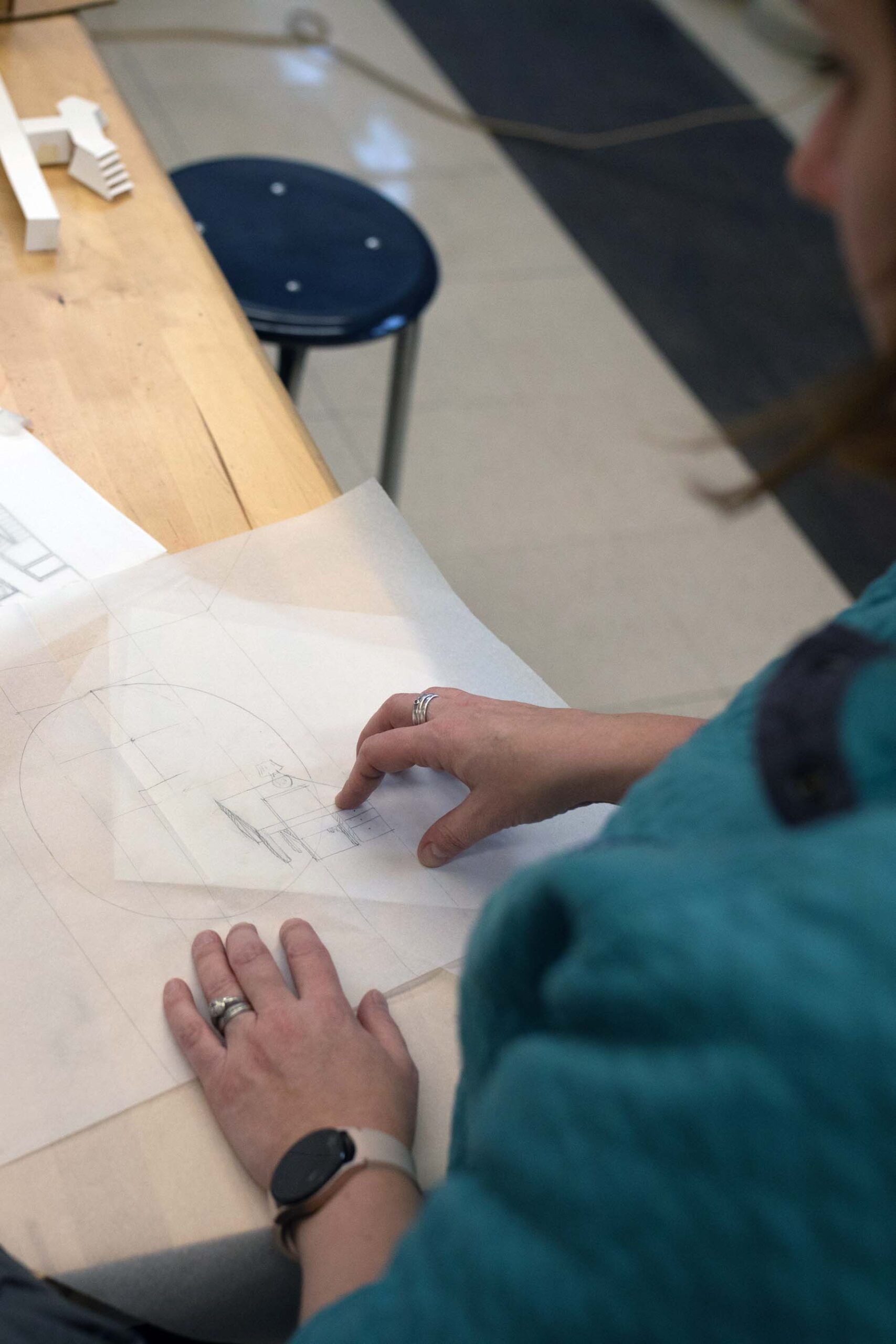
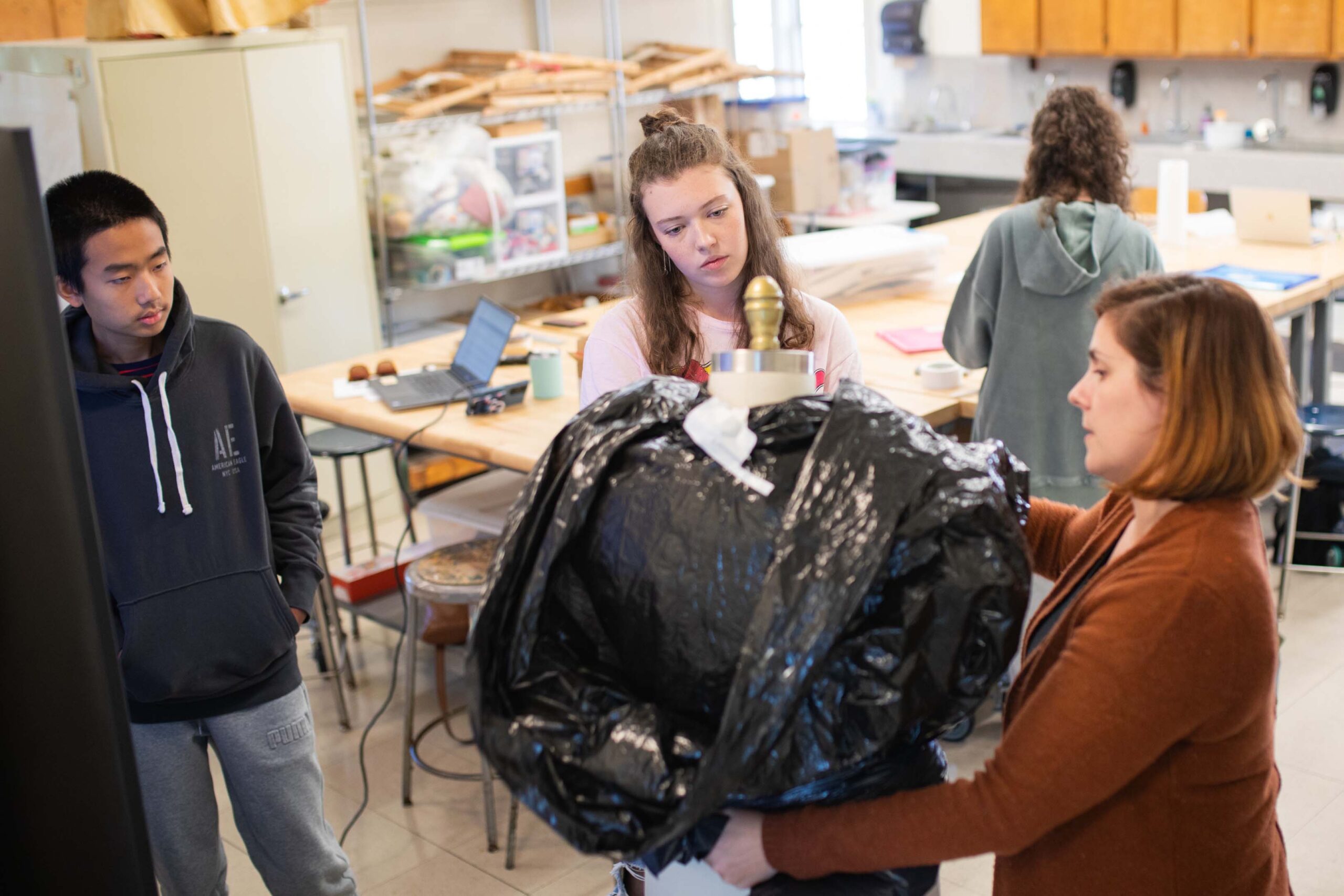
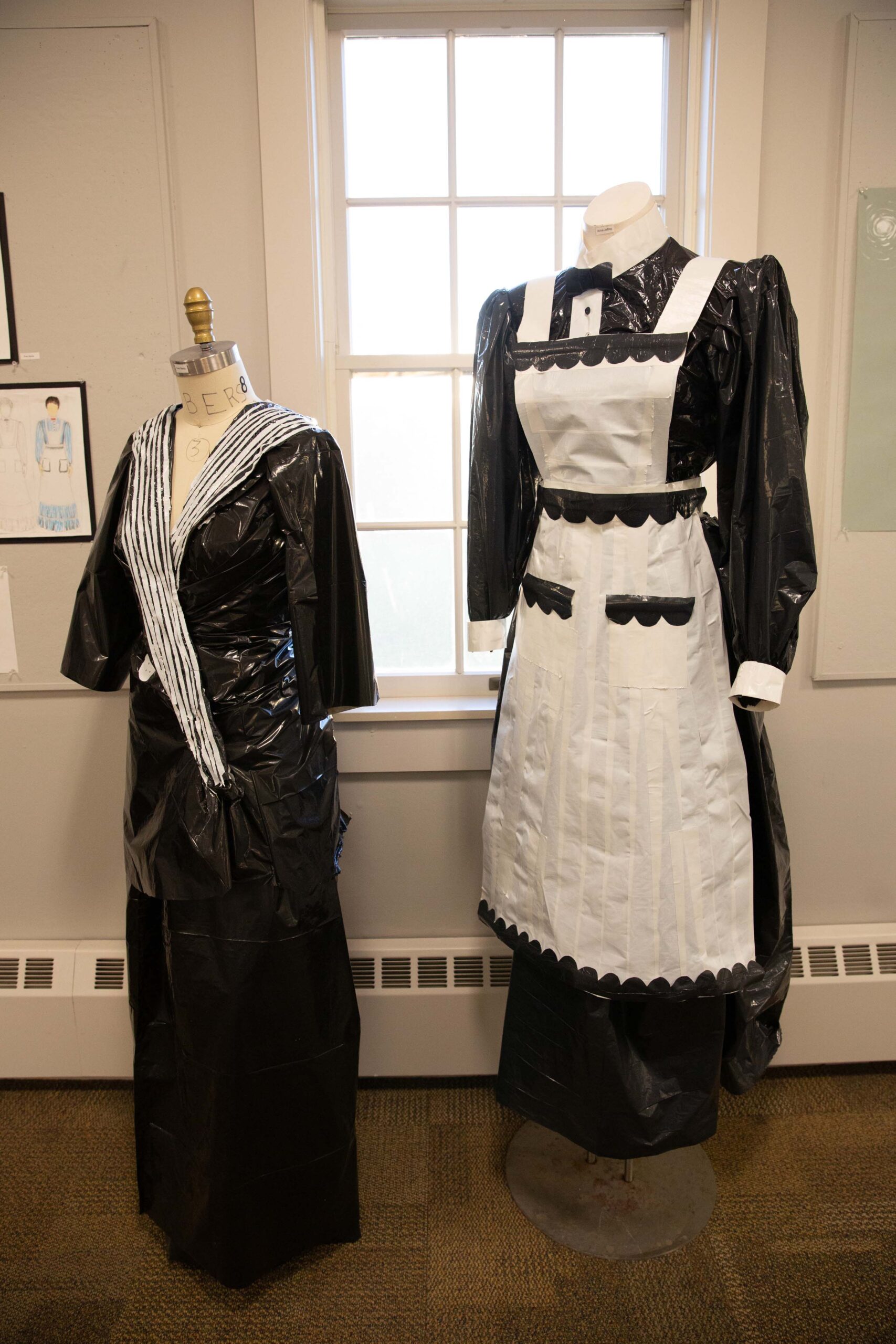
Ola ’24 and Lira ’26 perform in Sense and Sensibility. CA theater teacher Shelley Bolman P’27 works with Sophie ’24 (left) and Aviva Jeffrey ’24 in his Theater 3 class. Professional dialect coach Erika Bailey ’90, P’26 works with Avery ’24. Jessica Cloutier-Plasse reviews a student’s ground plan for a stage set. Cloutier-Plasse demonstrates for her Fundamentals of Production Design class how to work with trash bags to model costume designs. A completed costume design made from plastic trash bags and white duct tape.
Last spring Bolman invited Regine Vital, a Boston-based theater artist and educator, to CA to guest direct the year’s fall mainstage. Sense and Sensibility was her choice because, she says, “Jane Austen speaks to teenagers quite clearly.”
Nearly all the Boston-area professional theater artists who worked on Sense and Sensibility were women, including scenic, lighting, costume, and props designers, as well as dialect coach Erika Bailey ’90, P’26. Three CA faculty members—production manager Deanna Stuart, sound designer Nate Tucker, and technical director James Williston—completed the roster.
“It’s great for these kids to get a sense for what the work entails, what it looks like to do this professionally,” Vital says. “The discipline you need to have to be in the theater is also good life practice. Whether you’re an actor or a designer or on the crew, you’re being asked to hold a lot of things at once. There’s so much critical thinking, involving your full body and your emotions. Exercising those muscles is important—for school, for any kind of work. For CA to approach student theater in such a professional way is important.”
Micah St. George ’25 was the stage manager for Sense and Sensibility, as he had been for two Dance Project productions and, in 2022, for The Cradle Will Rock, under guest director Sarah Shin. He has also gotten into lighting design at CA. Fascinated by the “color and technology and wildness” of a Blue Man Group performance he attended as a kindergartener, he has devoted himself to learning technical theater. At CA, he says, “James and Deanna have been great about letting me create my own path for what I want to learn and explore.”
Micah says he has benefited from working alongside professionals: “It’s not just being on the sidelines watching. It’s like four years of professional theater experience right here in your high school.”
What he loves most is the camaraderie within the tech crew. “It always surprises me just how close we get by the end of a show,” he says. “We don’t have understudies like the actors do. If someone goes down, we have to step in. We’re collaborating, creating a family.”
Now Micah is helping other students step up, embracing an unofficial role as mentor to the tech crew. “I was taught how to do these things by people who are so passionate about what they do, and now I’m trying to pass that on to new tech people,” he says. “It’s really fulfilling.”
Technical theater is also included in CA’s curriculum. For the past nine years, visual and performing arts teacher Jessica Cloutier-Plasse has offered a class called Fundamentals of Production Design. Students who enroll tend to participate in tech crew as well, and if they’re interested in designing a show in their senior year, she guides them through meeting the requirements. “It’s more structured than people think,” she says.
Her project-based class usually focuses on costume, scenery, and lighting design, though she might substitute sound or makeup design. “Having a small class means I can tailor the course to what students are interested in, or if something starts becoming an interest during the semester, we can stay on it longer and go deeper,” Cloutier-Plasse says.
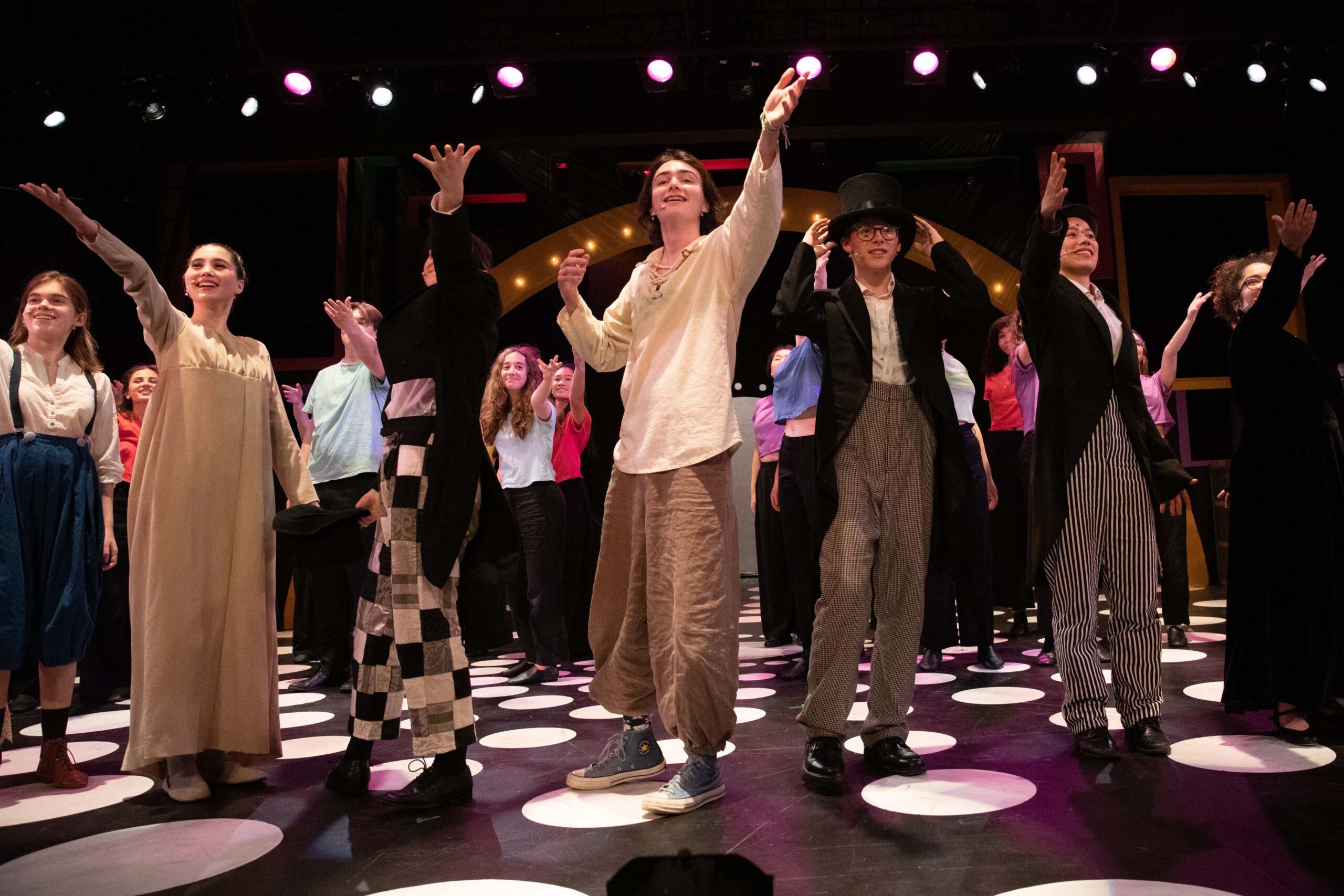
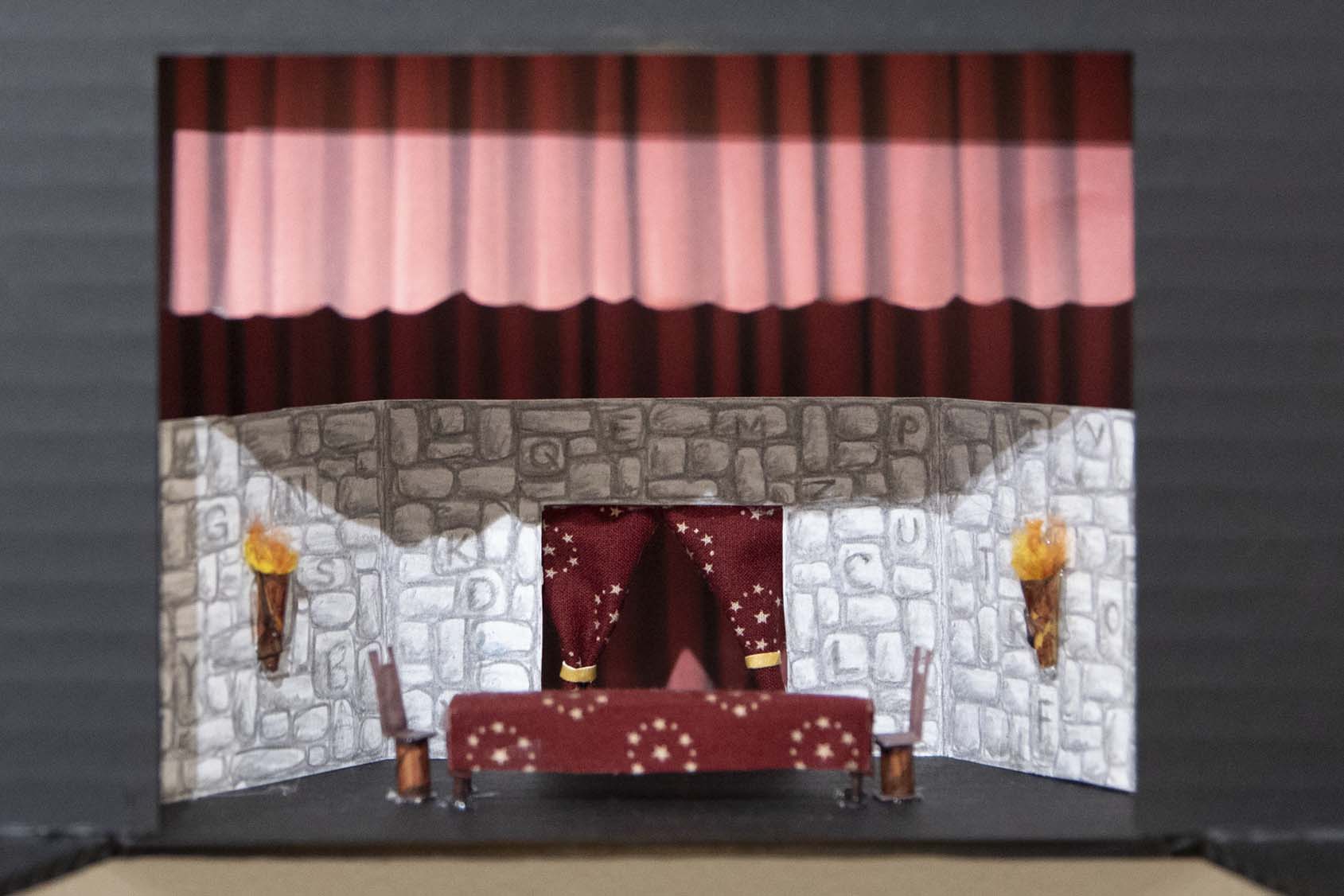
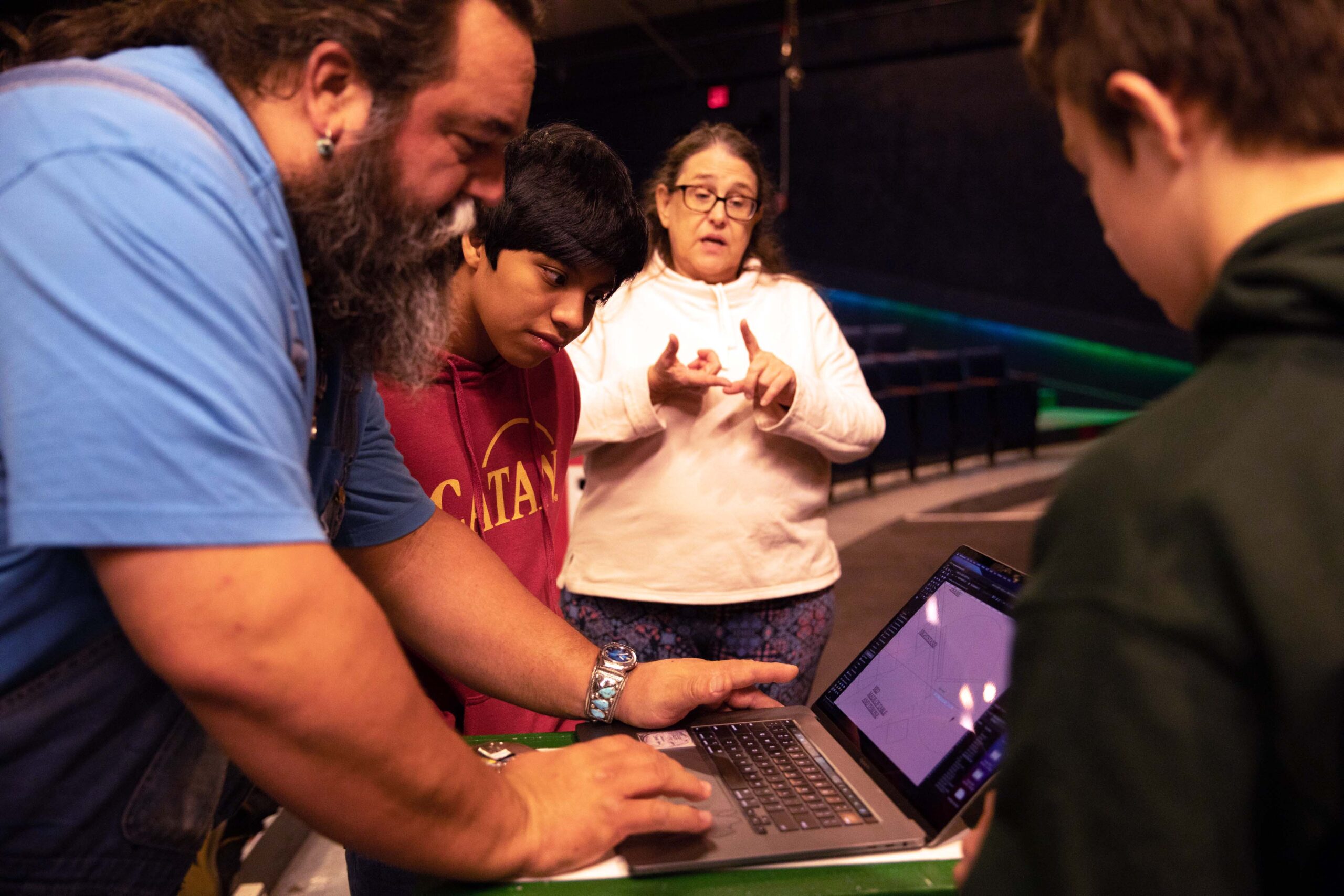
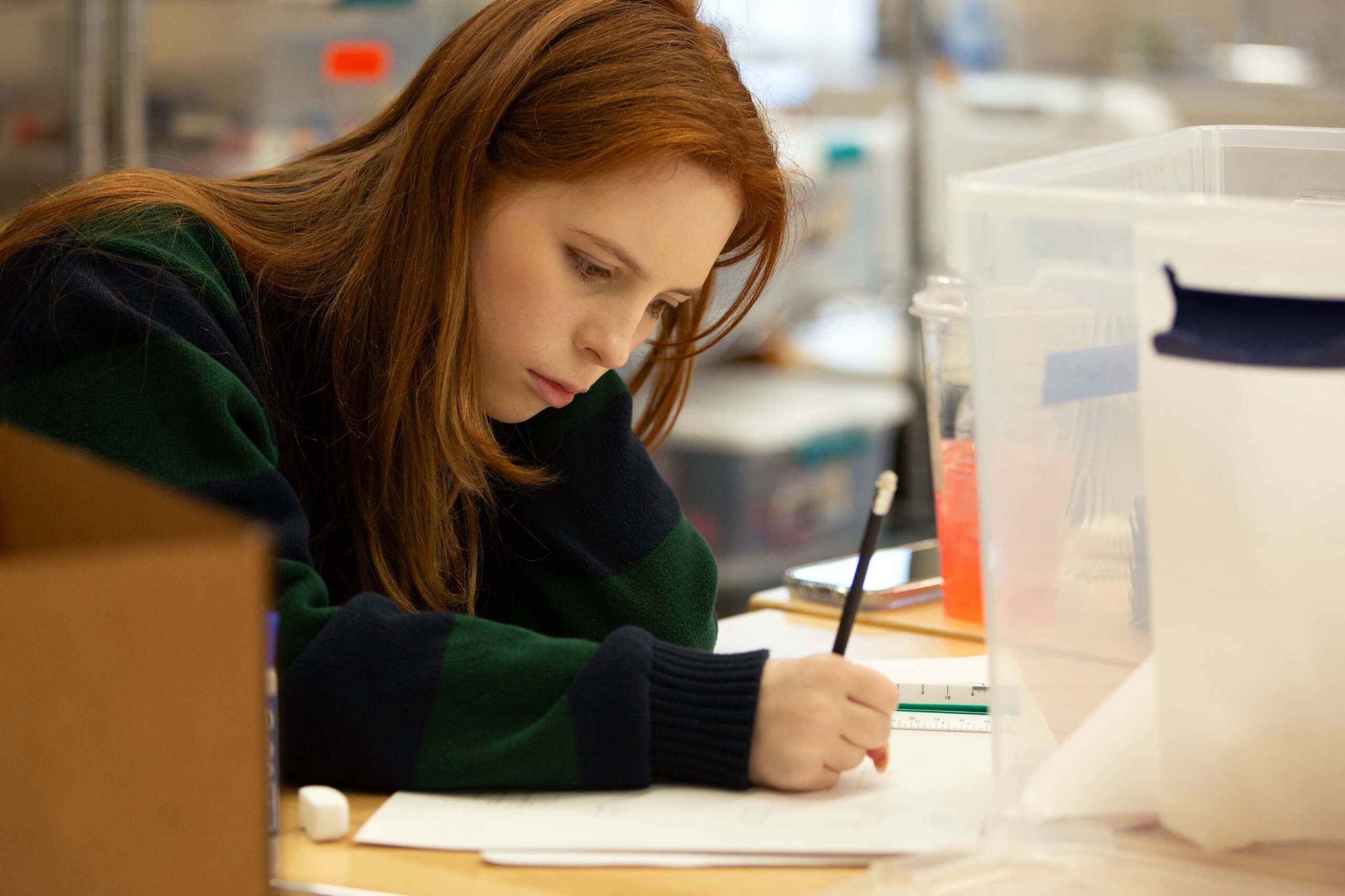
The cast of the CA mainstage production Pippin in February 2023. A scale model stage set for The Phantom Tollbooth by Aviva ’24. CA educators James Williston and Deanna Stuart work with students including Micah ’25 (second from left). Ever ’25 drafts a ground plan for a stage set for Fundamentals of Production Design.
Fundamentals of Production Design students learn how to read a script as a designer. “You need to understand context and foreshadowing and metaphor deeply because you need to visualize what’s being said,” she says. “You can’t present a design concept without being rooted in the text.”
In addition to script analysis and historical research, Cloutier-Plasse discusses color and imagery—including awareness of stereotypes and differing connotations across cultural contexts. Her students learn to storyboard scenes and translate two-dimensional ground plans into three-dimensional scale models of sets. At every step, she emphasizes intentionality: “A nonchoice is still a choice.”
She also stresses that production design is inherently collaborative. “Design is a visual conversation with the audience,” she says, one that develops through interaction with a director and other designers. “Theater is magic because of all of this hidden conversation. When we’re not doing our jobs, you notice us, but when we are, it’s seamless.”
This November in the fiber arts studio, Cloutier-Plasse’s students could be found sculpting costumes for Mary Poppins and George and Winifred Banks from black plastic trash bags and white duct tape. The bags were slick and smooth, and Cloutier-Plasse showed them how to alter the texture, back the material with tape to cut scalloped edging, and fold it to create knife pleats and fox pleats.
The materials were forgiving—the students appreciated the ability to take risks and make mistakes. Cloutier-Plasse encouraged them to approach the construction sculpturally, to problem-solve. “No problem,” she said when one student got stuck, pulling another bag from the roll. “That’s why they’re trash bags—nothing is precious.”
CA students who have a strong interest in theater can pursue it in great depth, both in and out of the classroom. That was part of what drew Aviva Jeffrey ’24 and Sophie Laurence ’24 to the school. Both have gained experience with technical theater as well as acting and directing. This fall, they took Fundamentals of Production Design during the school day while they served as assistant directors for Sense and Sensibility in the evenings. They also performed in the play.
Sophie recalls a time when she stepped in during Sense and Sensibility rehearsals when the cast was flagging. During the third run-through, energy was low. She asked the actors, including Aviva, who was in the scene, to make it as ridiculous and over-the-top as they could. “This cast took that and ran with it, and when we finished that scene, everyone was so happy,” Sophie says.
“Regine treated us with so much respect,” Aviva says. “From the perspective of someone who hopes to be directing soon, I want to learn to do that.”
“She made rehearsals fun,” Sophie adds. “She didn’t hold herself above us, and that was great to learn from. We definitely don’t want to bring in a sense of superiority as directors.”
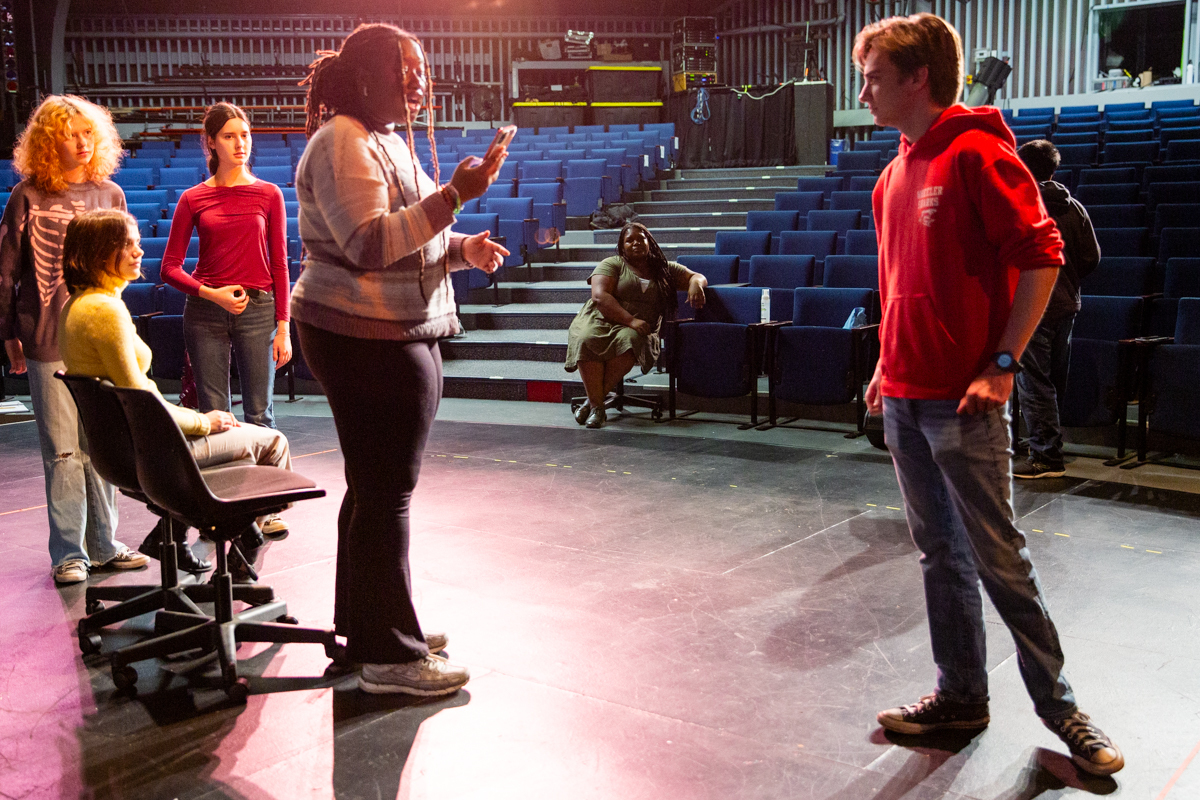
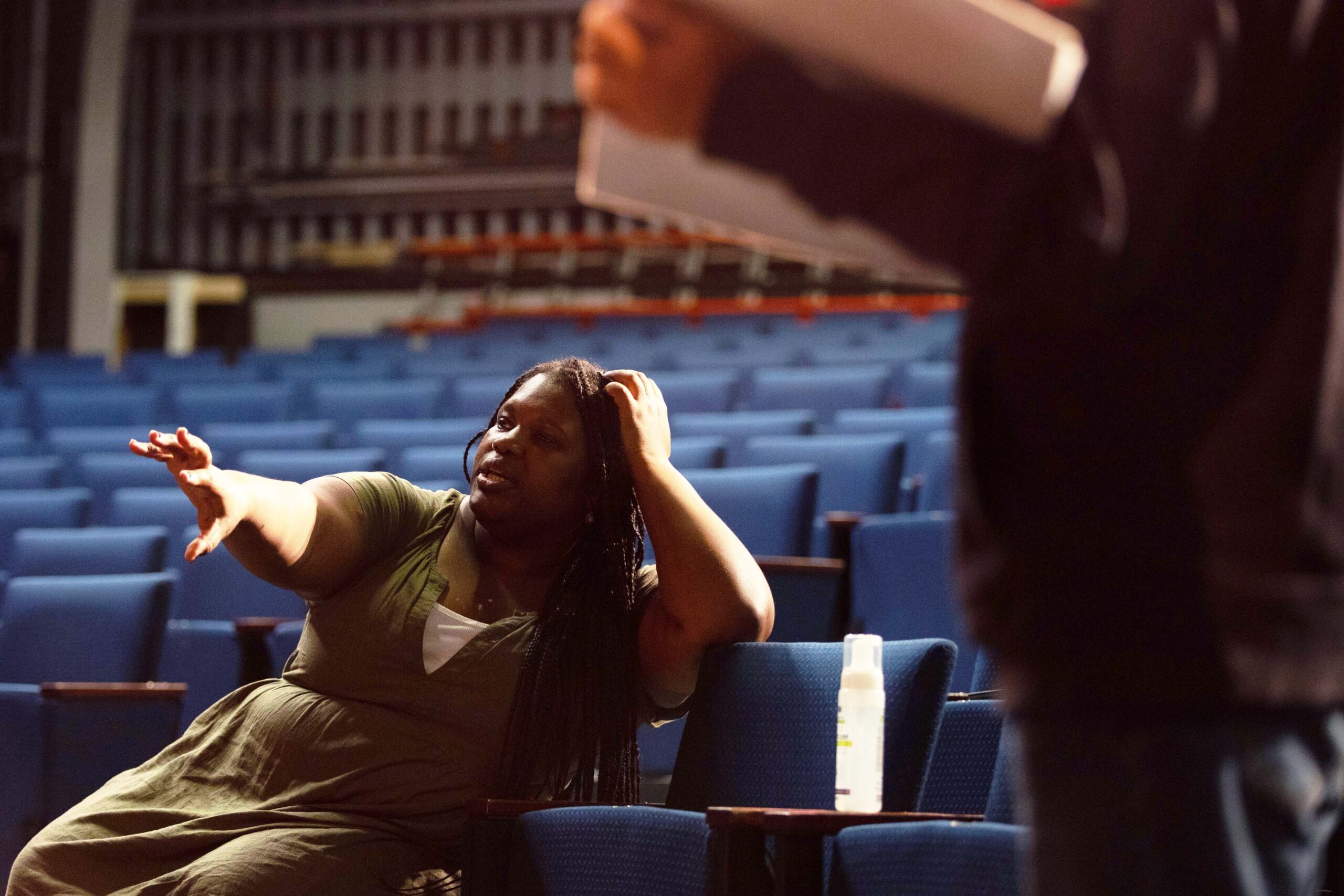
CA students rehearse for Sense and Sensibility in the Performing Arts Center. Sense and Sensibility guest director, Boston theater professional Regine Vital.
Aviva and Sophie also took Bolman’s Theater 3 class last semester. Because they were the only students in the class, they got a jump on preparing for Directors’ Workshop, for which they will co-direct John Cariani’s Almost, Maine, a full-length show composed of nine short plays, this spring.
In Theater 3 in December, they rehearsed monologues from different plays on the Performing Arts Center stage, each sharing reactions while Bolman observed and offered questions and suggestions. In Aviva’s monologue, her character recalls her many childhood pets being run over.
“If you have clear images in your mind, it will be horrifyingly funny,” Bolman told her. “You’ll make us laugh and cry at the same time.”
He pointed out an opportunity for discovery. “It feels like a big beat, after that mess on the road: ‘Here, I learned something,’” he told Aviva. “Whatever that moment is about, remember and relive that realization. We always like to see the moment of discovery onstage.”
Bolman says opportunities to engage so deeply with students are rare at other schools: “It’s like an upper-level college course—it’s really a capstone experience.”
“Shelley is such a great teacher,” Aviva says. “He’s so flexible.”
“And supportive,” Sophie adds. “The CA theater program has a reputation for taking itself seriously because we put on high-level shows, but it doesn’t feel like the people are taking themselves too seriously. In all the theater I’ve done here, even if it’s been very intense, we’ve had a goofy, fun-loving environment.”
“At the same time, we hold each other to high standards,” Aviva says. “It all speaks to the respect and agency we’re given.”
Sophie says, “It’s common trust. They know we’ll commit to the process because we love it.”
Now with Bolman directing, CA students are rehearsing for Twelfth Night. He says this 2018 adaptation by Kwame Kwei-Armah and Shaina Taub “has a contemporary feel but still retains the Shakespearean text and story.” It takes place on an island intended to be a welcoming, multicultural world. That’s reflected in the music—a mix of Motown, New Orleans jazz, 1980s pop, and more traditional Broadway fare.
In this tale of love and mistaken identity, Bolman says, “Shakespeare has a lot to say about the fluidity of gender roles, about who we love and why we love them. It’s very relevant today.”
He looks forward to the completion of the Centennial Arts Center, which will offer tremendous flexibility for staging, including allowing for theater in the round. With catwalks and a scene shop, among other purpose-built amenities, the value for technical theater students will be immense.
“It will make it easier to keep learning on our feet, collaboratively,” Bolman says. “In that new space, there will be opportunities that right now we can’t even envision.”
LEARN MORE
Read about Regine Vital’s approach to directing Sense and Sensibility.
